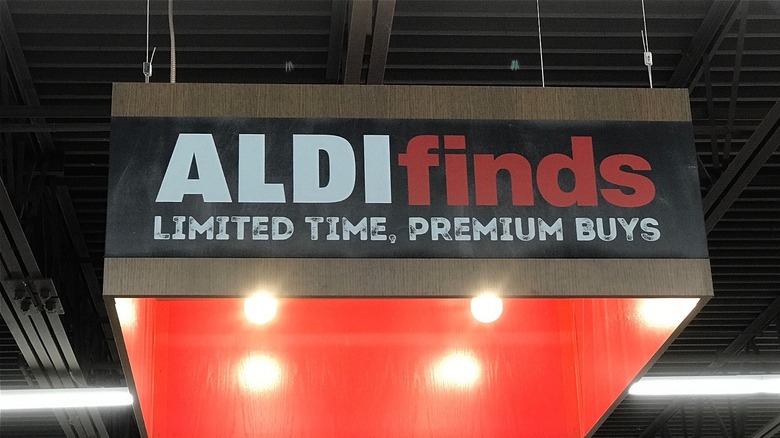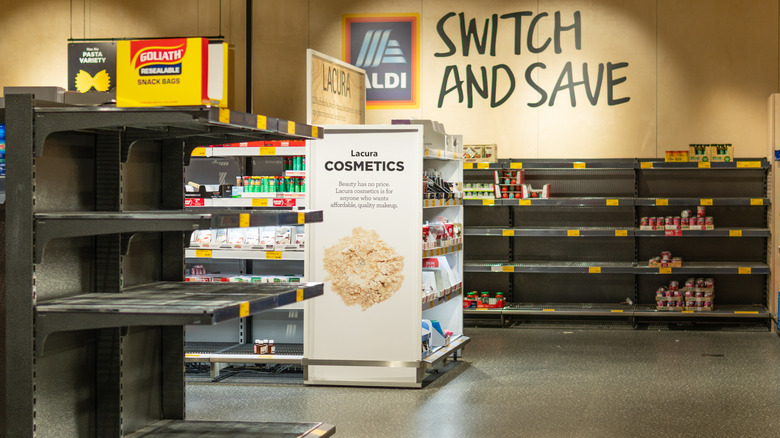Why Aldi Finds Products Are Becoming More Scarce
You might have noticed that Starbucks is facing shortages, or your local grocery store is lacking in the ingredients you need. It seems like the answer always leads back to, "supply chain issues," which feels like the new buzz phrase these days. But what does this actually mean? Simply put, the supply chain describes the many steps of the way goods or services take to reach the consumer.
For example, plastic forks are made in a factory and then may be transported to a distributor where a restaurant might order them from. The forks are then delivered through a delivery service to the restaurant, where employees unpack them. Now, if some part of that chain were to be disturbed, the rest of the chain would be affected. Suppose the factory couldn't get the raw materials, or the distributor didn't have enough drivers for delivery, like what is currently happening all across the country per Transport Topics. In that case, those forks might not make it in time or at all.
As you have probably noticed in your favorite store, the aisles are a bit bare, and Aldi's shelves are no exception.
Supply chain issues are affecting the grocery industry
Seemingly most hard-hit by supply chain issues are the food distribution and grocery industries. Empty and scant grocery store aisles are not uncommon, and stores seem unable to keep up with demand. It's been challenging to maintain stocked shelves while producers and distributors struggle (via NPR.)
Shay Myers, CEO of Owyhee Produce, told Reuters, "We typically will ship, East Coast to West Coast – we used to do it for about $7,000." He went on to explain that the price has dramatically increased to "between $18,000 and $22,000." Those kinds of inflated shipping costs make it difficult for stores to not raise prices.
Some shoppers have noticed a page on the Aldi website apologizing for product delays and detailing which products that have been advertised in the weekly specials might not make it to the store on time. According to Aldi Reviewer, not only are supply chain issues a contributing factor but increased demand for the products takes a toll, too.
Unfortunately, it's not just Aldi with empty shelves. CNBC reports that other grocery store chains like Albertson's, Kroger, and Walmart are feeling the heat, with some stores struggling to maintain products and failing to have a sufficient workforce to unload and stock merchandise, even when product demand is being met.

